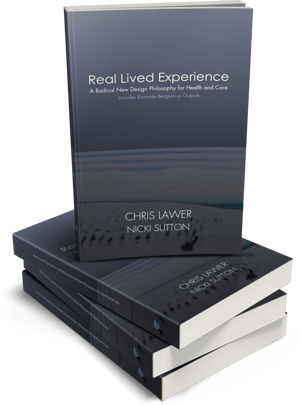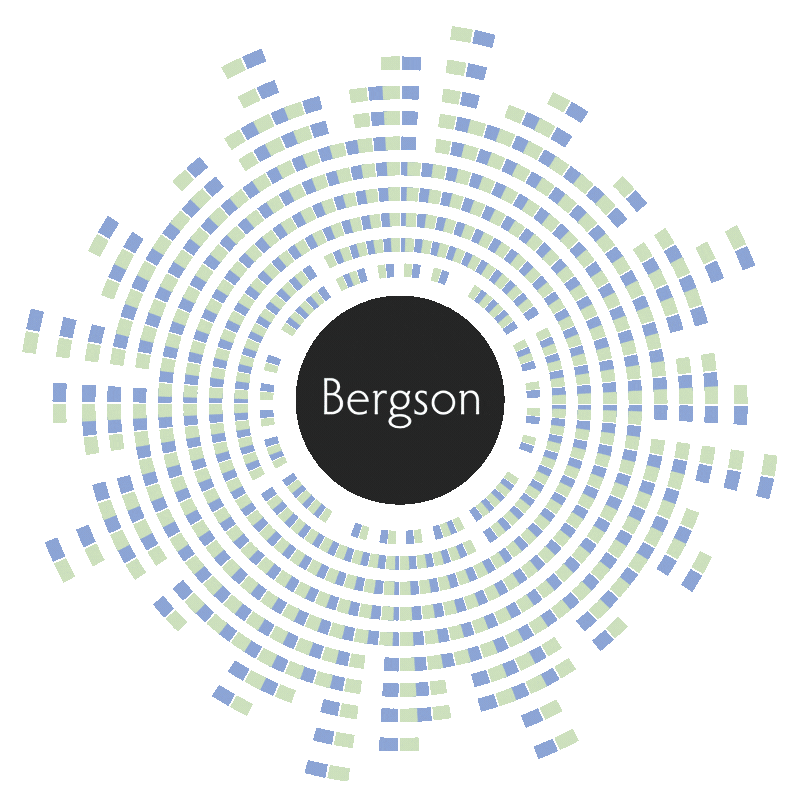STRATEGY AND INNOVATION CONSULTING FIRM
Transform Health, Care and Your Enterprise from the Ground of Real Lived Experience (RLX)
Innovate and design for what really matters in life, health, and illness. 
We help enterprises create and transform health and care from the ground of Real Lived Experience (or RLX).

Not just from patient metrics, needs, narratives or symptoms but from the ongoing events, intensities, ruptures, meanings and thresholds that arise in the flow of lived experience for any condition or illness, anywhere.

RLX thinking goes beyond a patient and even a human-centric frame to sense, design and innovate within the wider field of real experience - the shifting relations of bodies, people, place, technologies, cultures, and systems.

Because when we learn, design, and create from Real Lived Experience, we discover powerful new ways to support and transform the everyday realities of health and illness for contexts that truly matter.
Why does this matter?
RLX innovation and design drives sustainable revenue and share growth, clearer market differentiation and superior outcomes for all, whether patients, caregivers, professionals or payers.
Real Lived Experience
A Radical New Design Philosophy for Health and Care

Out Now
Health systems around the world are stuck. Chronic illness, mental distress, and care inequities continue to rise. Endless cycles of reform, innovation, and restructuring offer only partial fixes.
Why? Because we continue to look at health and care from the outside in - through metrics, technologies, abstractions, and policies - rather than from within the messy, affective, relational ground of experience itself.
Our new book introduces a radical new approach: Design with Real Lived Experience (RLX). More than a framework or method, RLX is a perceptual and philosophical reorientation.
-
Perceive what is actually happening - in bodies, relationships, settings, and systems - beyond the lens of behaviour, outcome, or diagnosis.
-
Learn from the ground of real experience by attuning to the affective, spatial, and relational dynamics that shape how people live, cope, and endure.
- Undo the abstractions that obscure real life. Doing so reveals what gets silenced, simplified, or ignored in standard design and planning.
-
Design and innovate WITH, not for, by creating technologies, services, environments, and supports that emerge from within the lived conditions themselves.
-
Co-compose meaningful care, connection, and change alongside those experiencing constraint. These are not solutions delivered, but shared possibilities made real.
-
Enact system transformation that is attuned, relational, and grounded in the full complexity of health, care, and life.

Bergson is our transformative agent that provides unparalleled deep insight into the real lived experience of any health condition, illness, or disability, anywhere in the world.
it empowers you to uncover the dynamic, interconnected feelings, factors and forces that shape human lives and health - giving you deep insights and a novel means to inspire change, design with purpose, and create real impact.
Bergson is available on a request and managed access basis with Umio support.
Explore Real Lived Experiences Around the World with Bergson.ai
Our RLX Design and Innovation Services
We offer bespoke services, research, and educational programs that help enterprises, teams, and communities design with the real, lived dynamics of health, illness, and human transformation.
All services are grounded in the principles of Design with RLX - a methodology that perceives health not as a fixed category, but as a relational, unfolding process of real lived experience.
Seeking new paths to health design, value and impact? Umio is for ...
Health and Care Innovators
Health and Care Enterprises
Clinicians, Therapists, Counsellors
Public Health Creators
Community Leaders
Public Policy and Social Researchers
Architects and Urban Designers
UX, Service, and Experience Designers
Academics and Educators

Our radical thinking and methods deploy a breakthrough perspective on lived experience, challenge status quo thinking, capture original insights, and facilitate impactful learning, design and value-creation ... in any applied health or wider experience context ... anywhere.
Testimonials
"Umio’s re-conception of experience and value provides the breakthrough thinking that healthcare and related systems need to repurpose resources and transform delivery."
"The Umio framework is comprehensive and just what we need to help deal with the complexities of health as we learn to value differences and activate capacities."
"Masterful .. outstanding .. detailed what and how framework for embracing a dynamic creational .. view based on whole lived experiences."






















